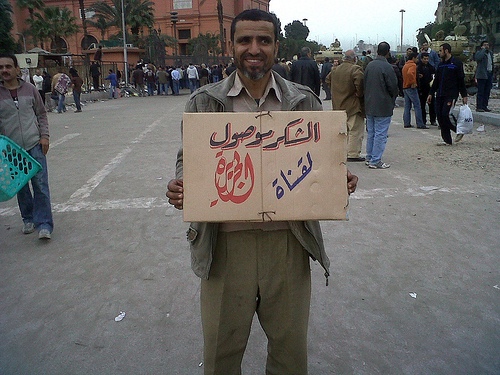middle east

First, let’s be clear that this was the Egyptian Revolution, not the “Facebook Revolution” or the “Twitter Revolution.” Events of the past few weeks belong wholly to spirit of the Egyptian people, not technology. And although it was built on democratic aspirations, this was not a revolution that drew any inspiration from the United States.
WASHINGTON -- From events of the past three weeks a number of lessons can be drawn, some old and some new:
First, the phrase "the Arab street" has been redefined by Tahrir Square. We don’t need acute listening agents or polling to see what the Arab world wants.
Egypt's revolution is momentous. In 18 days, a broad-based, nonviolent social movement overcame an entrenched, autocratic government. However, we are still in the first act of a long play.
The Middle East's most populous country is gripped by a struggle to oust its ruler, creating a demonstration effect not just for the Muslim world, but the whole world. Efforts by President Hosni Mubarak to bottle up dissent have failed miserably.
As the Islamic regime of Iran gears up this week to celebrate its 32nd anniversary, the people of Iran face monumental economic challenges similar to those faced by other countries in the region like Tunisia and Egypt.
Over the last century or so, Israelis have worked to make Israel a part of the Middle East. Israeli sabras (native born Israelis) with their argumentative attitudes; take no prisoners mentality; love for hummus, falafel and “Israeli” salad; tan skin; the yalla (let’s go) and no-translation needed ‘tseh (tongue hiss) live up to the Middle Eastern stereotypes and fit in with regional commonalities. If a tourist was dropped off in a nightclub or beach in Beirut or Tel Aviv, the only notable difference between the patrons would be the spoken language.
The notion of scientists from Israel meeting in Jordan with counterparts from countries such as Iran, Bahrain, Egypt, Pakistan and Turkey seems like something out of a fantasy novel. Yet such meetings have been occurring - most recently in November last year - for about 15 years, as a conglomerate of Middle East countries hammers out the details of a major scientific project to benefit scientists from across the region.
Glued to television sets in Ramallah’s shisha cafes, Palestinians have been watching al-Jazeera television attentively as Egyptian people rise up from Alexandria to Cairo. Looking on with admiration as tens of thousands fill the streets during the January 28th “Day of Rage”, cheers erupt through the cafes with every police retreat and every Molotov cocktail that lands on security vehicles.







